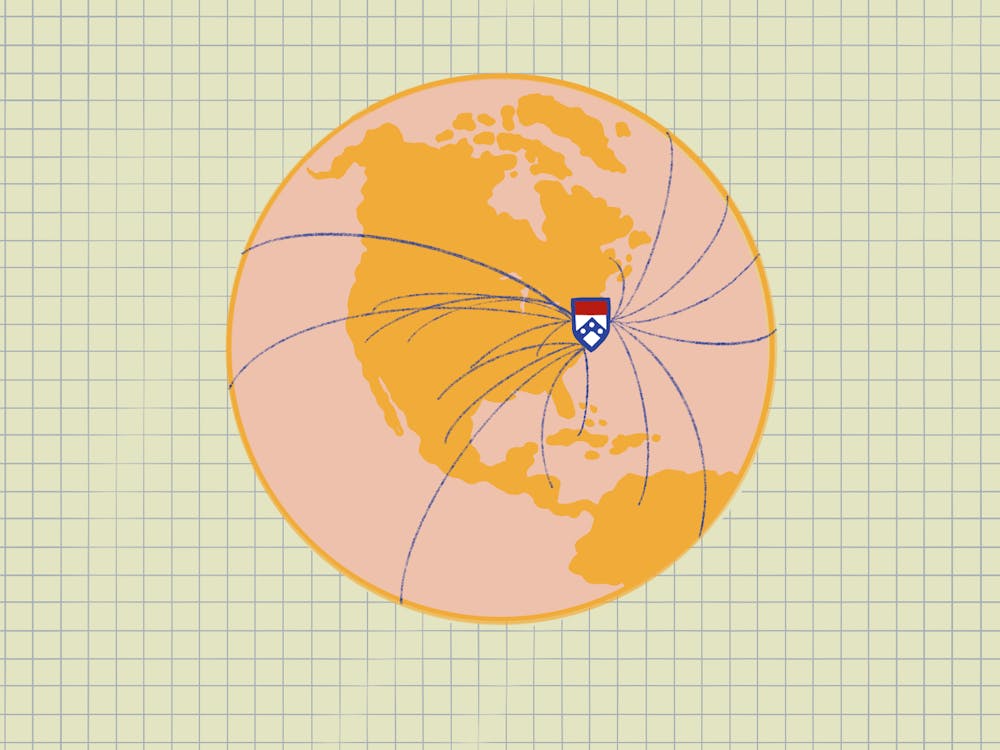Mehmed Can Özkan (C ‘24) may be spending his first semester of college at home in Istanbul, Turkey, but his body is living on Philadelphia time.
He has two digital clocks sitting side–by–side on his desk where he attends his Zoom classes. One flashes 12:05 a.m.—Istanbul time—while the other, displaying a small American flag, reads 5:06 p.m.—almost dinnertime.
For the weeks leading up to his planned move–in date, Mehmed waited intently for his visa approval, a process that was delayed due to coronavirus travel restrictions. When Mehmed finally received his visa, however, his excitement was short–lived. Just hours later on that same day, Penn announced that it would no longer provide housing for undergraduate students. Mehmed was crushed.
Scattered all across the city, country, and world, first–year students are navigating Penn in ways they never could have imagined. While some look out their dorm window to a tranquil but surprisingly active Locust Walk, others are stuck states, or even oceans, away in their childhood bedrooms, tethered to Penn only by a weak Zoom connection. Regardless of where they are, the Class of 2024 is united by anxieties about making friends, the complications of online school, and treading the blurry line between childhood and adulthood.
Penn promised to make accommodations for students studying remotely, leading Mehmed to believe the time zone difference would be accounted for in his academics. However, he soon realized his remote semester would not be exactly as advertised.
“During the first week, one of my chemistry courses scheduled to be at 8:00 a.m. got switched to 8:00 p.m., which corresponds to 3:00 a.m. here,” Mehmed said, “I asked the professor to record the lecture, but he was a bit hesitant at first.” After many email exchanges, the professor eventually started recording the class.
By the time the recorded chemistry lectures were posted to Canvas, however, Mehmed already found himself staying up later and later to attend classes, fearing that he would miss out on working with other students.
Mehmed eats most of his meals alone, on Philadelphia time, aside from the occasional occurrence when his lunch corresponds with his parents’ dinner.
“It’ll be 7:00 a.m. here, so midnight Eastern Time, and I’ll go out for a walk to Starbucks and get some decaf coffee. I’m usually sleepy and dizzy, but it’s nice to get out and move my legs; otherwise, I’m stuck in my room all day,” Mehmed says.
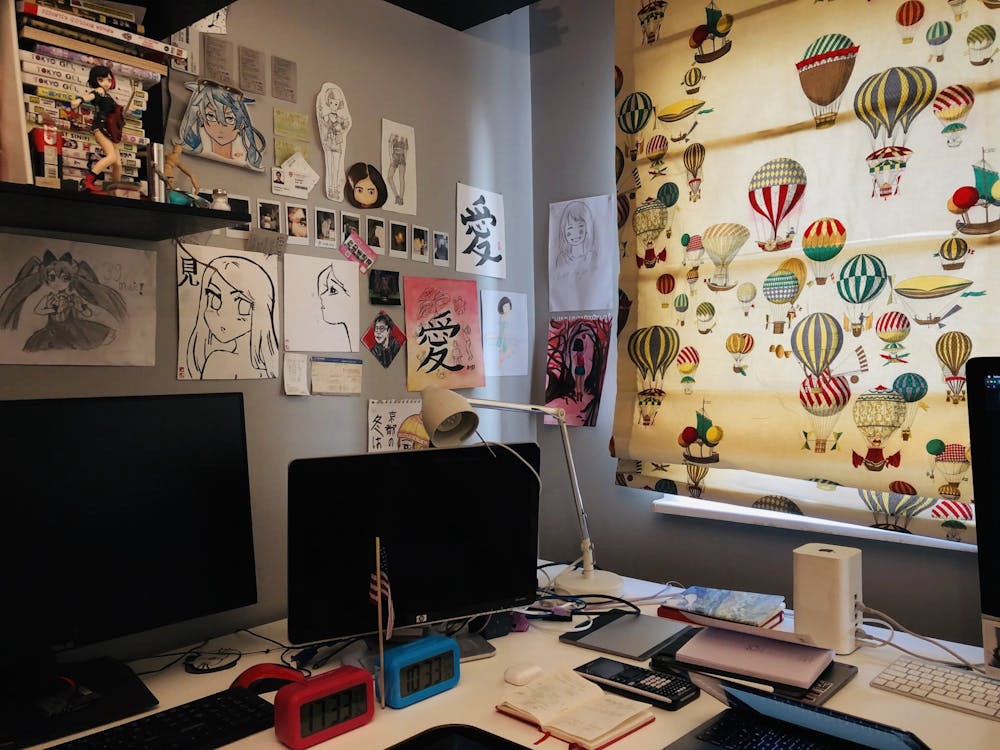
Hertha Torre (C ‘ 24) is an international first–year student living in Madrid, Spain. Six hours ahead of Philly, all of Hertha’s morning classes have become afternoon classes, and her afternoon classes, night. So far, she remains on her normal sleep schedule, but it hasn’t been easy. For the virtual SAC Fair, Hertha found herself awake past 3:00 a.m. to ensure she did not miss any Zoom information sessions.
Hertha also notes the difficulty of the language barrier in her adjustment, since her past schooling—aside from English class—was fully in Spanish.
“Switching to an entirely different system under any circumstance is difficult, but it’s even harder because I’m still living in Spain,” Hertha says. “Here, I don’t have the opportunity to immerse myself in the English language like I would if I was on campus.”
Hertha and Mehmed both attempted to interact with other students and build relationships, but found Penn’s support to be lackluster.
“Penn is such a big university and has so many resources available, but oftentimes I don’t know how to reach out to them,” Hertha says. “Being online, I feel we, as students, have to be so much more self–motivated.”
These feelings of disconnect and frustration are not limited to first years taking classes overseas. Many first years living in the United States are also stuck in their hometowns, feeling far removed from the school and community they spent much of high school dreaming about.
In the wake of rising coronavirus cases in the country, Houston native Isaac Gateno (C ‘24) was shocked when Penn announced students could move into the dorms for a hybrid semester. Once Penn reversed its decision in early August and Isaac realized he would be staying home, he felt a sense of relief.
“The only reason I wanted to [live on campus] so bad was because of [fear of missing out]. Based on polls I had seen on Instagram, I knew that 80% of my class was going to be on campus, and I really didn’t want to be in that 20% that wasn’t,” Isaac says. “But now that 90% of my class is staying home, I’m in the majority.”
Although he’s missing out on late–night talks and trips to Wawa, he’s happy to be keeping pace with the rest of his class and holding off on making friends during a pandemic. He knew he would feel disheartened if he made friends with people, only to find out that they were behaving irresponsibly.
“I feel like it’s one of those ‘ignorance is bliss’ situations,” he says. “If you’re going to be partying during a pandemic, I would rather not know that you’re stupid—I would rather make friends with you when this is over,” he adds bluntly.
But Ashley Song (W ‘24) didn’t want to miss the campus social experience. In fact, she was determined not to allow Penn going online to prevent her from leaving home. Declaring to her parents, “You can’t stop me from going to Philly!”, she began frantically looking for off–campus apartments. She envisioned the changing foliage of campus, finally meeting her roommate, and walking past College Hall on her way back to the Quad.
Instead, just one day after her last shift at the local grocery store, Ashley was asking for her summer job back. Some of her co–workers jokingly asked if she had already dropped out of college.
Ashley describes herself as someone who “loves everything to be structured,” and finds the biggest challenge of being home to be the lack of defined spaces to study, sleep, and eat.
However, she is immensely grateful to have a quiet space to attend classes, as well as parents who cook meals for her. Many students are not as lucky, with familial responsibilities and financial hardship complicating the online learning experience.
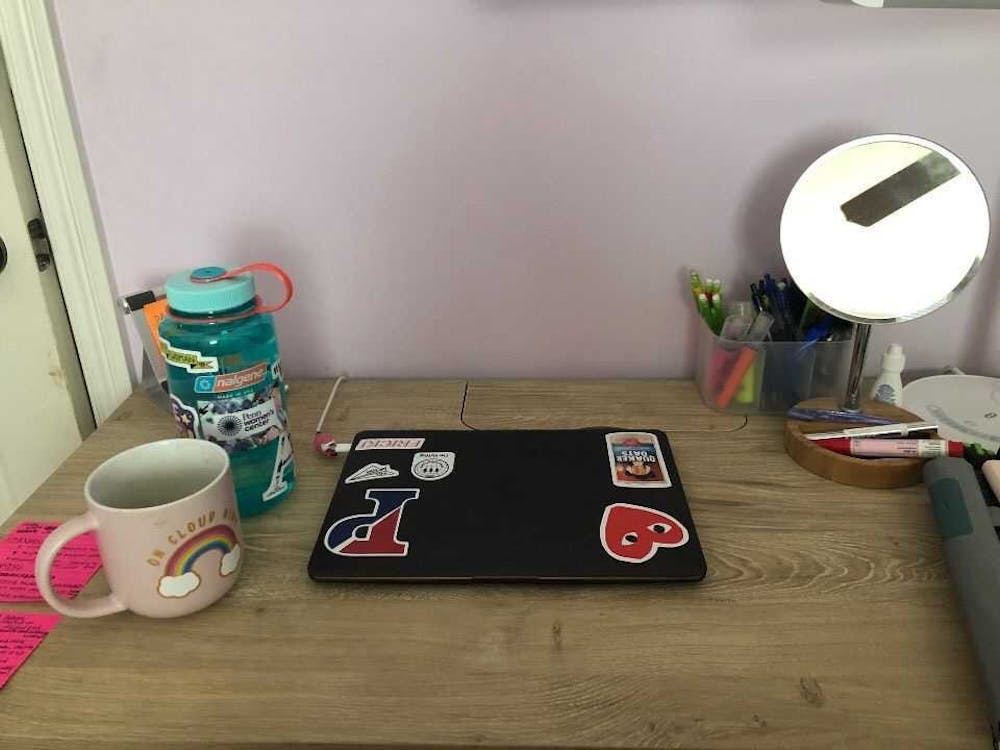
“It’s one of those things where you have to check your privilege,” she says. “I don’t have to worry about anything besides school when I’m at home, but it makes me wonder about the students who are in less fortunate situations.”
Despite her relatively comfortable living conditions, there are still many challenges to adjusting to a University miles away while at home. Ashley feels pressure to shift away from high school friends to college friends, and is trying to find a healthy balance between the two.
She virtually attended PennQuest—a pre–orientation program—where she became close with her group of about 10 other first–year students. Ashley says she has also been creating friendships in less structured ways—private messaging during Zoom lectures and sparking up conversations on Snapchat or Instagram, for example. Reaching out is the easy part, she says, but keeping the communication going can be taxing.
“There’s just this weird insecurity of, I’m making all these friends, but what’s going to happen when I meet them in person? What if they’re super different and I just spent four months of my time talking to them for nothing?” Ashley says.
Uncertainty about friendships seems to cut across the Class of 2024 in two distinct ways. Ashley—who is surrounded by her high school friends back in Nashville—wonders what she might be missing in the Penn scene. First years like Cierra Freer (N ‘24), however, who are adjusting to living on campus, find themselves craving the familiarity of friends and family back home.
Cierra applied for a housing exception soon after the University reversed its decision to allow all first years to live on campus.
With two parents and three siblings—including a four–year–old brother—quarantined under one roof, finding a quiet corner to attend Zoom lectures would be impossible for Cierra, who also shares a bedroom with her younger sister.
Now, in her Harnwell suite where she lives alone, Cierra’s biggest distraction is the charming view of Locust Walk that she has from her first–floor window. Although she does enjoy spending time alone—a welcomed adjustment from her summer in close quarters with her family—Cierra finds herself feeling slightly lonely and even homesick.
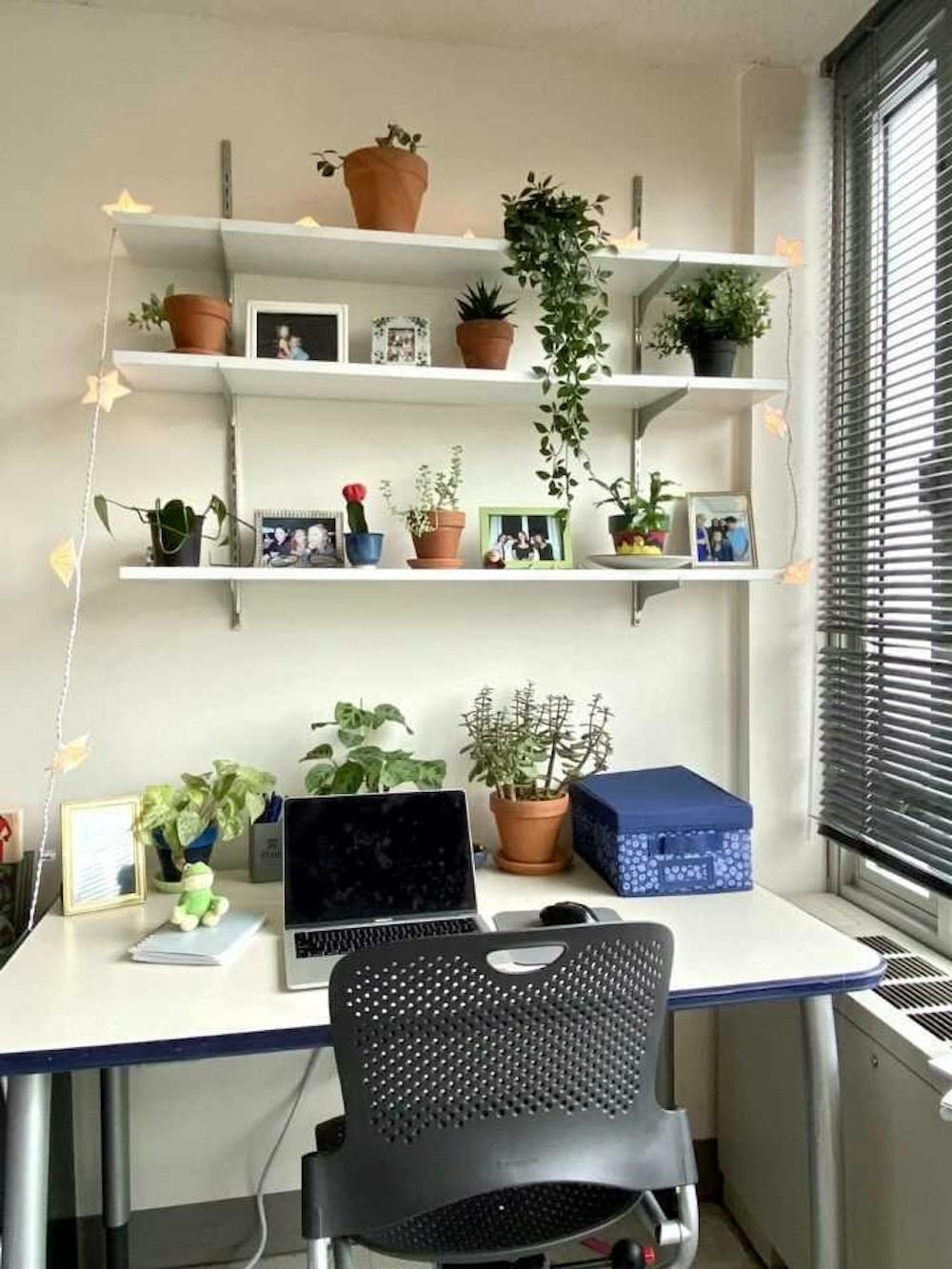
“If I was at home, I would have my high school friends and my family with me,” Cierra says. “Even though I have met some people here, it’s not the type of thing yet where you can just hang out casually, especially because of the pandemic.”
For the sake of “completing [her] work and getting good grades,” however, Cierra feels confident that she is in the best possible situation.
Deborah Olatunji (N ‘24) says she put “all [of her] eggs in the basket of getting a housing exception,” and is grateful to be living on campus. However, as a Nursing student passionate about public health, she has found herself becoming increasingly frustrated with the administration’s lack of enforcement regarding social distancing and mask–wearing mandates. From her window in Rodin, she loses count of the number of careless Penn students she sees who go out in public without masks and hang out with large groups of friends.
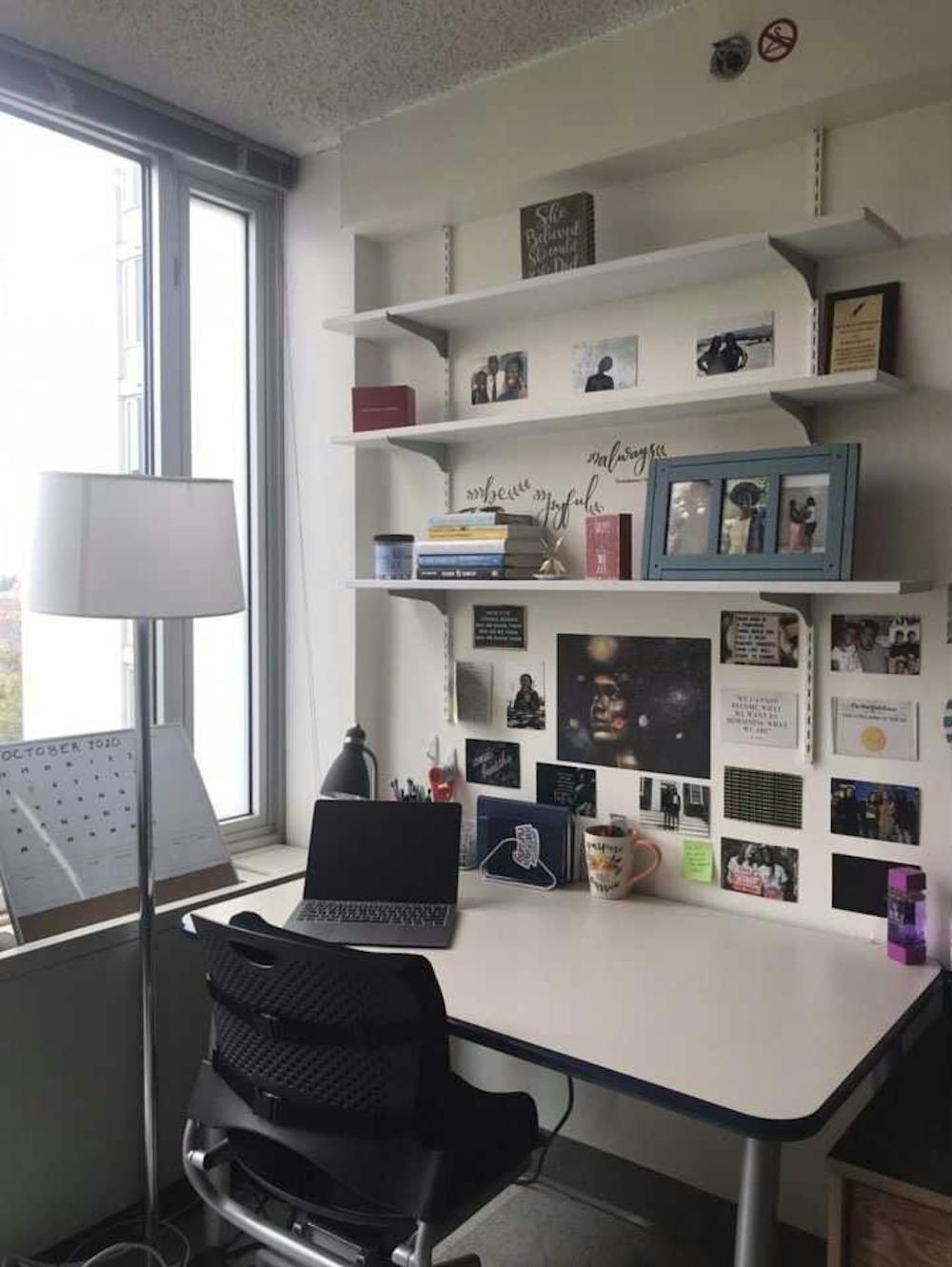
Although she is frustrated by the irresponsible actions of individual students, Deborah thinks that most of the blame ultimately falls on the University and its refusal to pursue consequences for students who break the Student Campus Compact. Deborah feels that Penn’s supportive messaging surrounding Black Lives Matter is incongruous with its weak enforcement of coronavirus guidelines, a choice that harms Penn’s already vulnerable neighborhood. The coronavirus, which has been especially deadly for people of color, presents intensified risks in West Philadelphia, which is over 75% percent Black.
“This is a very serious, ongoing health crisis that continues to hurt our communities—disproportionately Black and brown ones,” Deborah says.
Overall, Deborah feels that the school’s commitment to coronavirus safety is “very, very, lax” and compares it to being at a “summer camp with no rules.” As a result, she feels the need to overcompensate in terms of safety protocols during interactions with other students.
“Whenever I want to meet up with someone, I go through the whole test: Do you believe that COVID is real? Do you wear a mask? Have you been tested? How many times have you been tested? When’s the next time you’re going to be tested?” Deborah says. “There are probably tons of people on this campus who feel like those are invasive questions, but when it comes down to my health and my social life, I would rather live than have a fun night out on the town.”
Scheduling Zoom meetings and attending socially distant hangouts make for tough new beginnings as Penn first years start college. But some of the worries of the Class of 2024 have been felt by a myriad of classes before them—difficulties making friends, keeping up in their classes, and living up to the prototypical freshman experience. The extraordinary circumstances of the coronavirus pandemic have demonstrated that there has never been one way to be a freshman.
